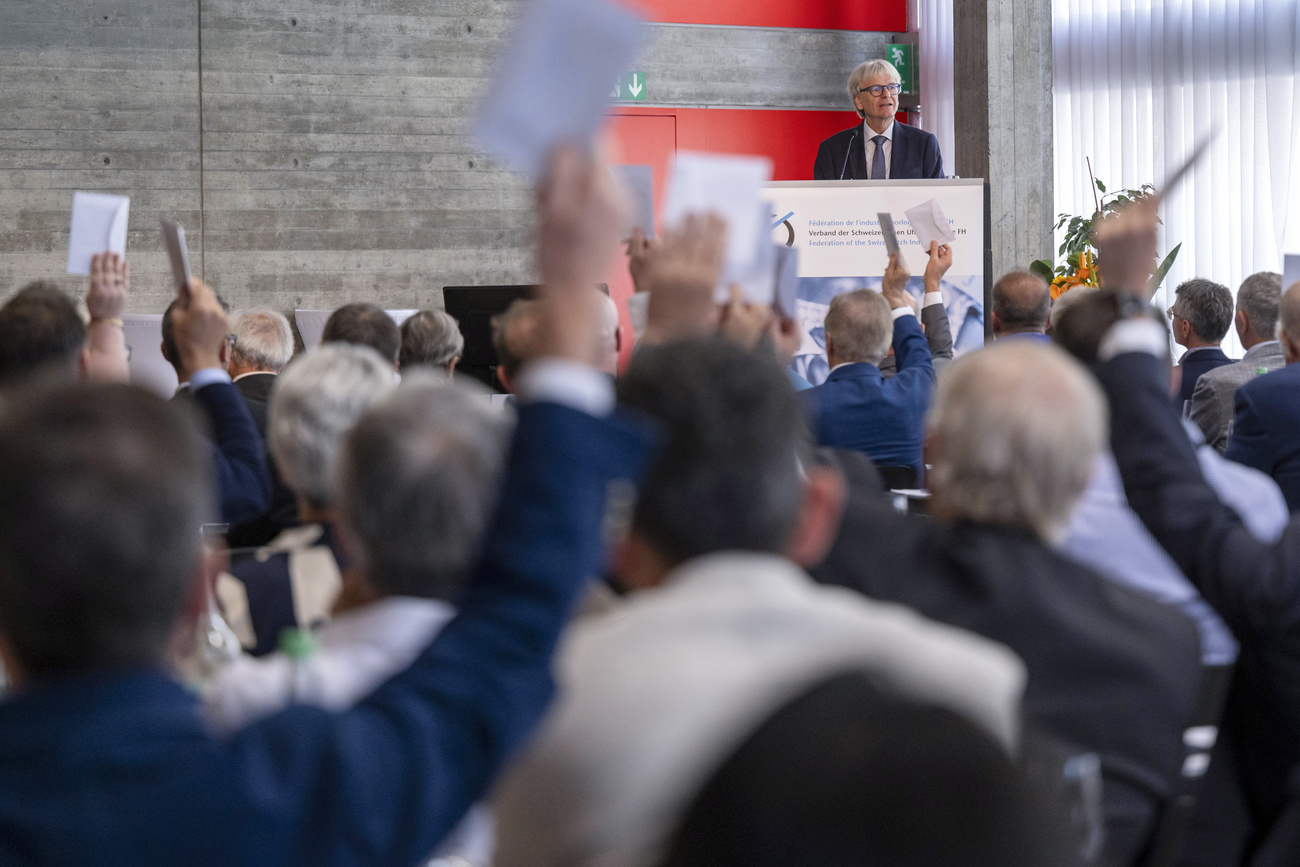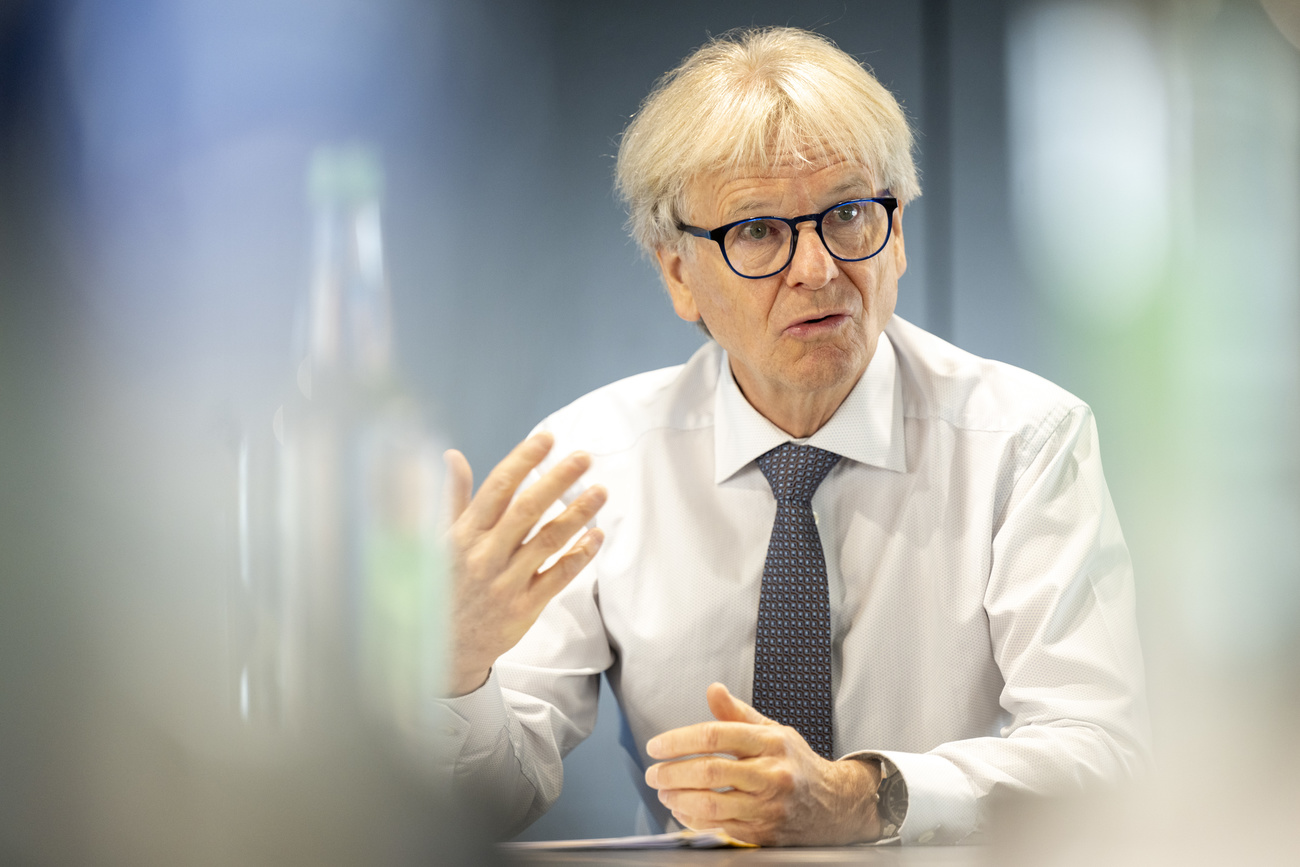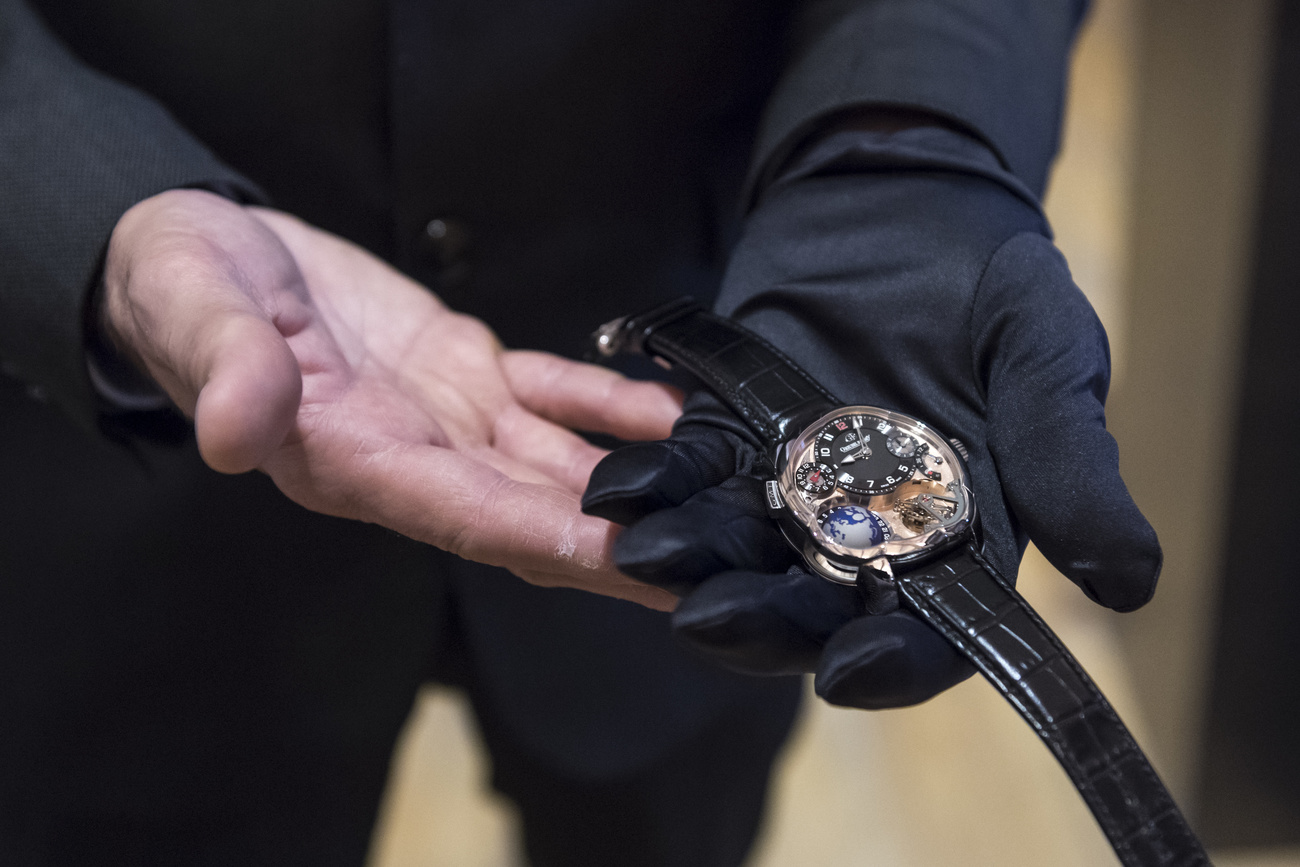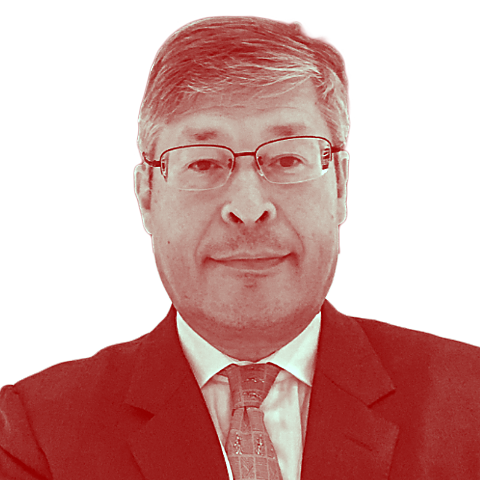
‘The arrival of foreign capital has not harmed Swiss watchmaking’

Jean-Daniel Pasche, president of the Federation of the Swiss Watch Industry, believes that the takeover of Swiss watch brands by foreign groups is not a problem. He says it would be inconsistent to demand free access in one direction and restrict it in the other.
After two decades as president of the Federation of the Swiss Watch Industry, Pasche will be stepping down at the end of 2023. In an interview with SWI swissinfo.ch, he looks back on the highlights of his term in office and describes the challenges facing his sector.
He also discusses the challenges for his umbrella association, which has almost 450 members. Together they represent over 90% of Swiss companies involved in the production and marketing of watches and watch components.
SWI swissinfo.ch: What have been your greatest successes and regrets during your two decades as president?
Jean-Daniel Pasche: Representing Swiss watchmaking around the world has always been a source of great pride for me. My greatest success has been maintaining good relations with the players in our industry, even if I haven’t always been able to please everyone on every subject.
Born in 1956, Jean-Daniel Pasche comes from western Switzerland and holds a law degree and doctorate from the University of Neuchâtel.
From 1982, he worked for the Swiss Federal Institute of Intellectual Property as a lawyer, then as head of the trademarks division and as a deputy director.
In 1993, he was appointed a director of the Federation of the Swiss Watch Industry, and since 2002, he has served as president of this organisation.
SWI: You’ve had to deal with very divergent interests. Can a single federation really represent the entire Swiss watchmaking industry?
J-D.P.: It’s entirely possible to reconcile the interests of very different players – large corporations and small independent companies, as well as luxury and entry-level companies. To succeed in this, it’s necessary to address issues that unify the industry, such as economic, tax and energy policies, intellectual property and the fight against counterfeiting, competition law and statistics.
Of course, listening carefully is essential, as are engaging in dialogue and bringing people together on a regular basis.
SWI: You mentioned the campaign against counterfeiting, which is one of your organisation’s main missions. Is this battle bearing fruit?
J-D.P.: Counterfeiting remains an enduring scourge, because successful products will always be subject to imitation. Our federation is actively involved in the fight against this phenomenon: in confiscating and destroying counterfeits, training authorities, technical analyses, removing ads for counterfeit Swiss watches posted online, and so on.
No technology can completely eliminate counterfeiting, but new advances are helping to reduce it. For example, the latest technologies enable the analysis of products and materials and improve traceability – thanks in particular to blockchain – and they facilitate the detection of advertisements for counterfeit products.
SWI: In many non-watchmaking sectors, Switzerland is home to a multitude of foreign companies. What about your industry?
J-D.P.: Swiss watchmaking also attracts foreign investment from Europe and Asia. This is beneficial when these investors contribute to the long-term development of our industry. Overall, I don’t think our sector has suffered from the arrival of foreign companies and capital, even if there have been a few setbacks.

SWI: Reading the work of historian Pierre-Yves Donzé, we discover that it was thanks to Swiss expats in Japan that the Japanese watchmaking industry was able to prosper. By attracting foreign companies to Switzerland, aren’t we once again running the risk of divulging our knowledge?
J-D.P.: The risk of technology transfer is there, particularly in the event of a Swiss company being acquired by a foreign player, but this is all part and parcel of a market economy. Closing borders and blocking capital transfers would not be a sensible response, as watchmaking is an export industry that depends on open markets and the free transfer of capital. It would be inconsistent to demand free access in one direction and restrict it in the other.
SWI: Watch exports are booming. In which major markets do you see significant growth potential?
J-D.P.: Exports are indeed growing, and we’re optimistic about the future. In the short term, however, we need to be cautious, given the geopolitical context, inflation and the strength of the Swiss franc, particularly for subcontractors who are facing postponed orders.
In the longer term, we still see growth opportunities in established markets such as the United States and China, as well as in emerging markets such as India, Brazil and Indonesia. However, for India and Brazil, it is essential to improve framework conditions by ensuring intellectual property protection, reducing customs duties and taxes, and simplifying administrative procedures.
SWI: The value of exports in Swiss francs is reaching record levels but the number of watches exported is falling steadily. What are the consequences for subcontractors?
J-D.P.: Over the years, export volumes have increased in the high-end segment, but decreased in the entry and mid-range segments, with the exception of the last two years. Just as it is critical that the Swiss watch industry continues to offer watches for all consumer categories, it is important that export volumes remain high enough to preserve the Swiss industrial fabric and watchmaking jobs.
SWI: You played an active role in strengthening the “Swiss made” label, which came into force in 2017. Looking back, what was the impact of this legislative change?
J-D.P.: The new legislation put the focus back on the importance of “Swissness” and prompted many companies to reassess their manufacturing processes to ensure compliance with the new rules. In concrete terms, some companies have increased their sourcing of Swiss components or repatriated certain processes.
However, other companies simply stopped production in Switzerland because they could no longer (or no longer wanted to) comply with the “Swiss made” label rules. As a result, hundreds of thousands of parts were no longer manufactured in our country. But when we tightened the “Swissness” legislation, we were aware of the risk of relocation.
SWI: When “Swissness” was reinforced, there was strong opposition, particularly from brands positioned in the entry and mid-range segments. What is the situation today?
J-D.P.: Yes, a number of brands – especially in German-speaking Switzerland – strongly opposed the “Swissness” project. Our aim was never to favour one category of company over another, but to preserve consumer confidence in the Swiss label. We maintained regular contact with the opponents, particularly during the implementation of the new text. Tensions have eased, even if the current definition still gives rise to debate.
SWI: Under the “Swissness” legislation, the technical development, final inspection and assembly of movements must be carried out in Switzerland, but most components can be produced abroad. Isn’t this a contradiction?
J-D.P.: In terms of components, it’s true that only the movement must be Swiss. For example, the use of foreign trim components is permitted, as long as the criteria for minimum value and for processes to be carried out in Switzerland are met.
Our room for manoeuvre was limited, given the need to respect Switzerland’s international commitments – in terms of free trade and non-discrimination – and thus avoid retaliatory measures from the authorities in the European Union, China or Hong Kong.
To put it another way, it was impossible to simply ban the import of watch components, and I fully understand the frustration of some Swiss subcontractors.
Edited by Samuel Jaberg. Translated from French by Catherine Hickley.

More
Swiss watchmaking: where things stand

In compliance with the JTI standards
More: SWI swissinfo.ch certified by the Journalism Trust Initiative


























You can find an overview of ongoing debates with our journalists here . Please join us!
If you want to start a conversation about a topic raised in this article or want to report factual errors, email us at english@swissinfo.ch.